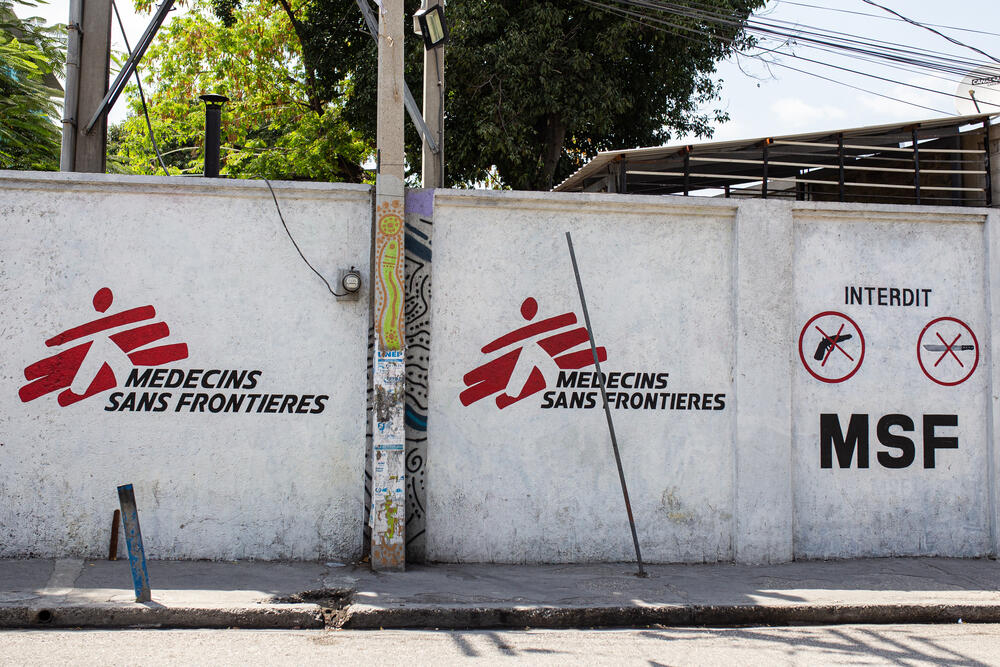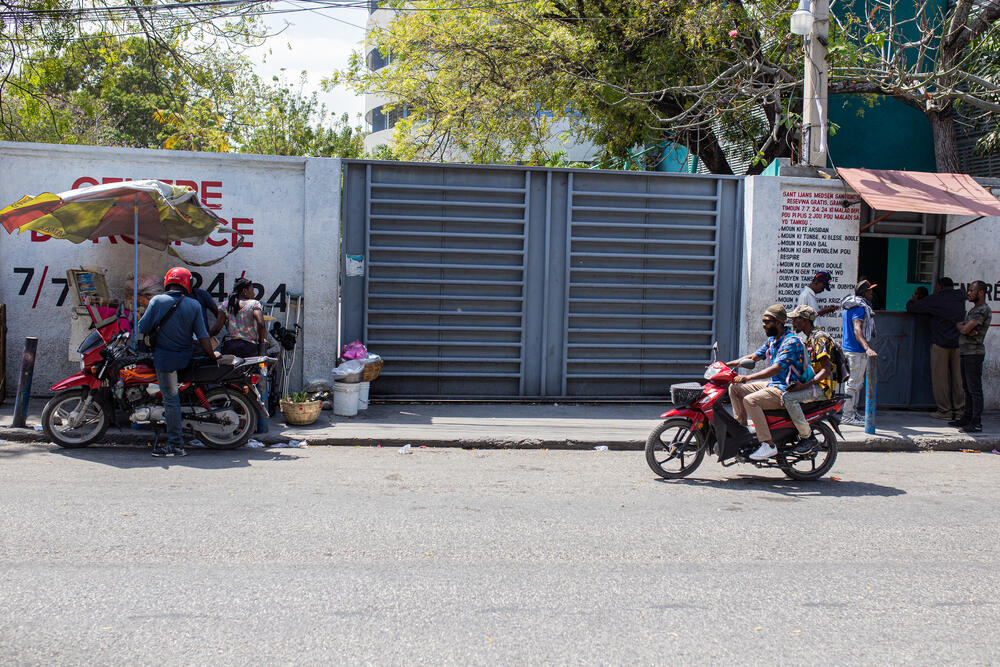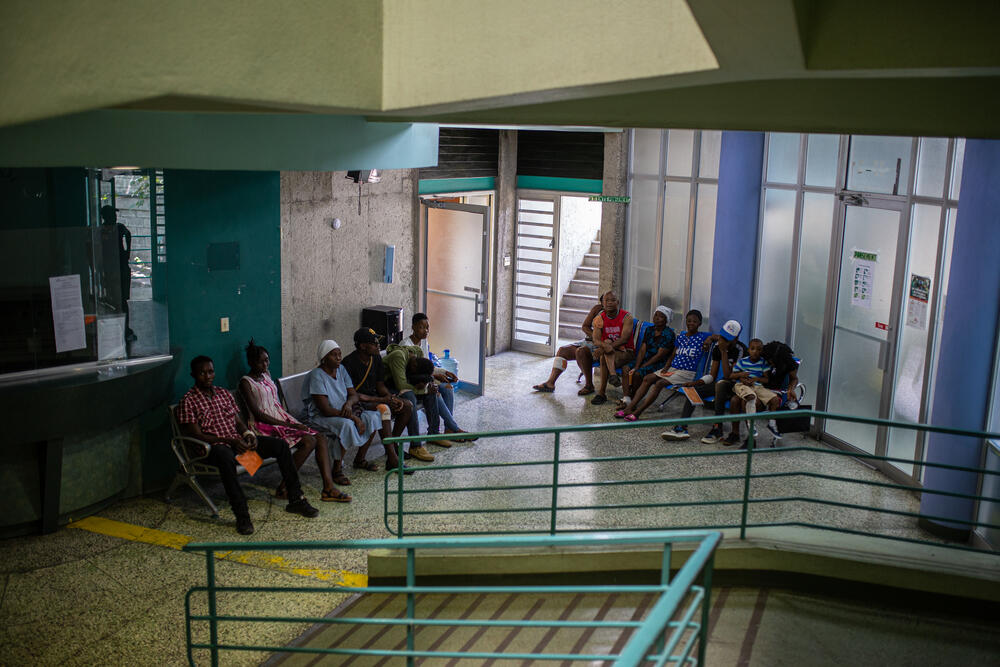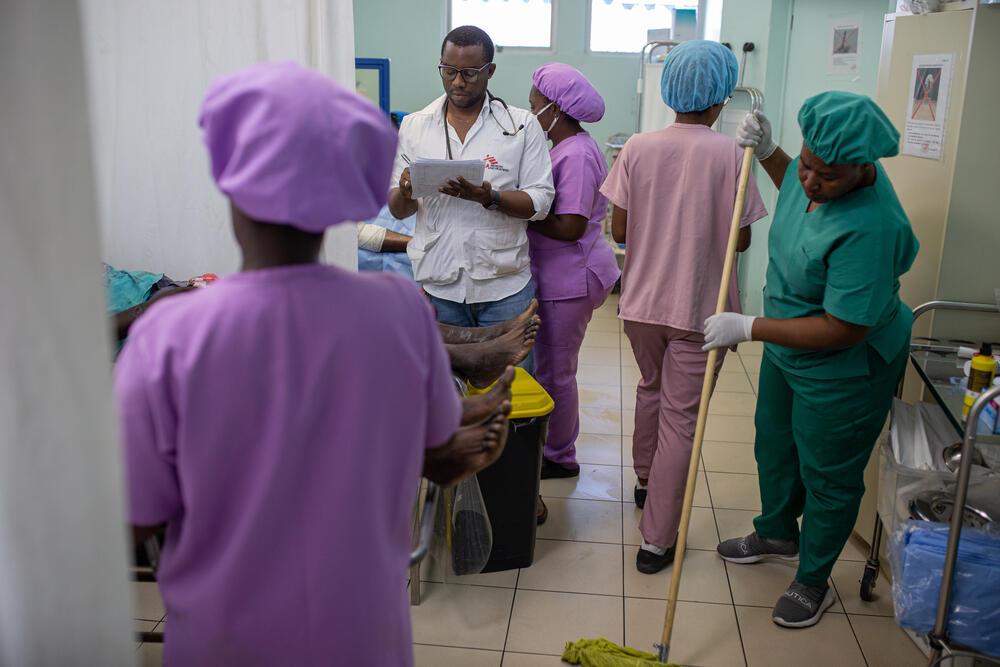Haiti: Violent clashes force temporary closure of MSF hospital in Cité Soleil
7 March 2023
Port-au-Prince – Faced with unsustainable security risks, international medical organisation Médecins Sans Frontières/Doctors Without Borders (MSF) has been forced to close its hospital in the Cité Soleil area of the Haitian capital as a temporary measure. Violence has been spreading throughout Port-au-Prince since 28 February, leaving those caught in the crossfire with no choice but to flee.
With violent clashes between heavily armed rival armed groups taking place just meters from the hospital compound, MSF said it was no longer able to guarantee the safety of its patients or staff.
"We are looking at a war scene just meters from our hospital," says MSF medical advisor Vincent Harris. "While the hospital has not been targeted, we are a collateral victim of the fighting since the hospital is right on the frontline of the fighting. We realise that closing the hospital will have a serious impact on the people of Cité Soleil, but our teams cannot work until security conditions are guaranteed.”
Large numbers of stray bullets have entered the hospital compound, while reaching the hospital is currently almost impossible for the sick and wounded, some of whom have been injured in the battles nearby. SF, whose teams have worked in Haiti for more than 30 years, has called for fighting around the hospital to stop and for medical activities to be respected so that staff can restart their work as soon as possible and continue providing healthcare to the people of Cité Soleil.
MSF is also concerned that the current upsurge of violence in the Haitian capital is happening while local people face ever greater humanitarian and health needs.
"We are looking at war scene just meters from our hospital."
Meanwhile, patient numbers have increased significantly at MSF’s emergency centre in Turgeau, in central Port-au-Prince, 10 km from Cité Soleil. In recent days, MSF teams have admitted up to ten times the usual number of people with gunshot wounds.
"Since the fighting resumed in the neighbourhood of Bel Air on 28 February, we have received many children, women and elderly people,” says MSF medical activity manager Dr Freddy Samson. “It's terrible to see the number of collateral victims of these clashes. It’s hard to tell how many people are wounded in total across the city because many people are too terrified to leave their neighbourhoods.”
MSF teams running mobile clinics in areas at the centre of the recent violence have witnessed the armed clashes firsthand, forcing them to abruptly end their medical consultations. Many people have fled the fighting and sought shelter in informal sites, which have quickly become overcrowded. MSF teams carried out assessments in neighbourhoods located in the city centre and observed the critical needs of a large number of displaced people at risk of being hit by stray bullets, living in dire conditions and with limited access to clean drinking water.
Armed groups fighting spread to every neighbourhood in Port-au-Prince, the capital’s entire population faces an extremely difficult situation.
"It's terrible to see the number of collateral victims of these clashes."
“The violence is getting closer and closer,” said an MSF staff member who preferred to remain anonymous. “They are shooting at our house – my upstairs neighbours found a stray bullet in the stairs. Many people are evacuating the area. We have seen people of all ages leaving. I myself was forced to leave with my family and take refuge at a friend's house.”
Despite the temporary closure of its hospital in Cité Soleil and the deteriorating security situation in the capital, MSF teams remain committed to assisting the Haitian people, the principal victims of the violence that has been tearing the country apart for years. Our teams continue to treat victims of violence and burns at Tabarre, victims of sexual violence in Delmas 33 and in the Department of Artibonite, victims of serious accidents in the emergency centre of Turgeau, pregnant women and their babes in the South Department as well as populations affected by urban violence through mobile clinics.
In 2022, in collaboration with the Haitian Ministry of Health, MSF teams carried out more than 4,600 surgical interventions, provided 34,200 emergency consultations, treated 2,600 patients with gunshot wounds, treated 370 burns victims, provided 17,800 medical consultations in mobile clinics, provided care to 2,300 survivors of sexual violence and assisted 700 deliveries. Since late-September 2022, MSF teams have also treated more than 19,000 people for cholera symptoms.




